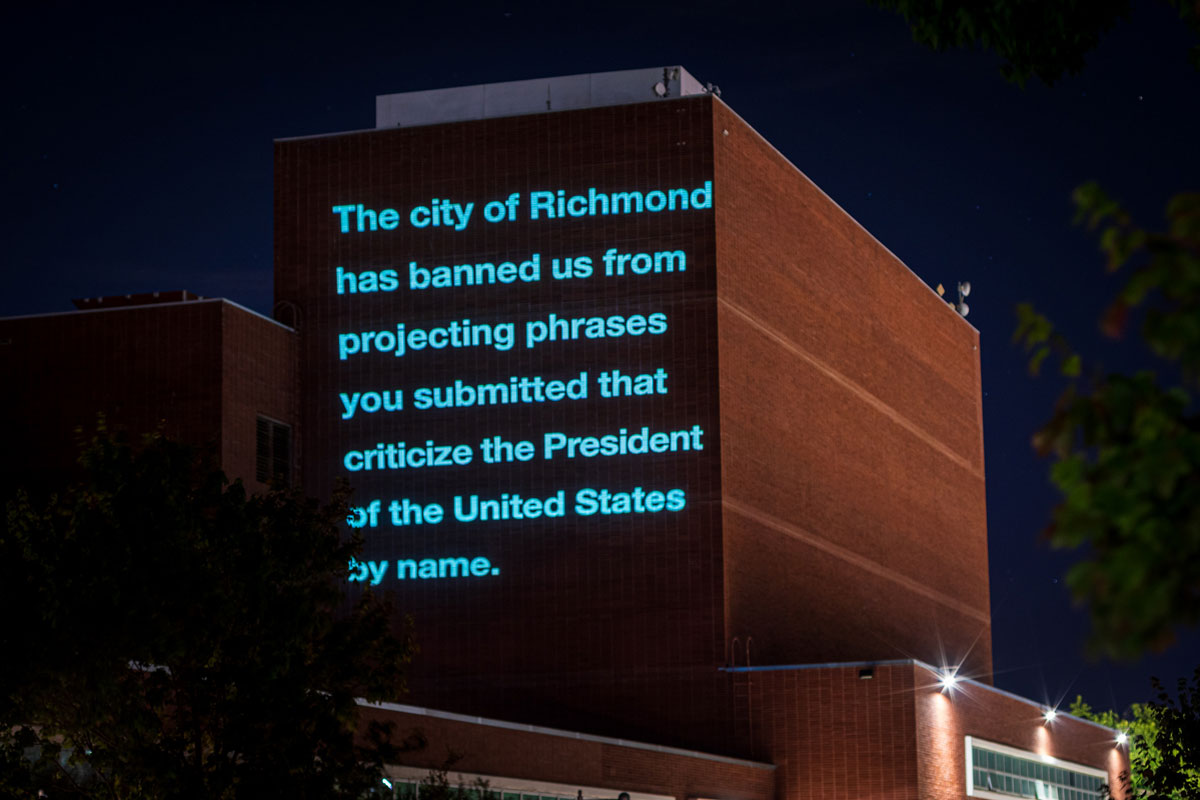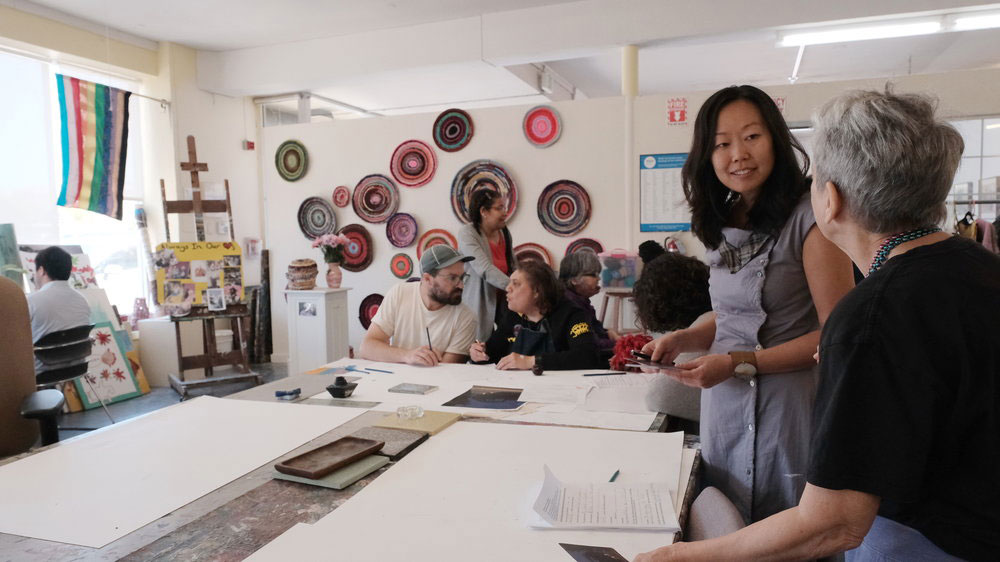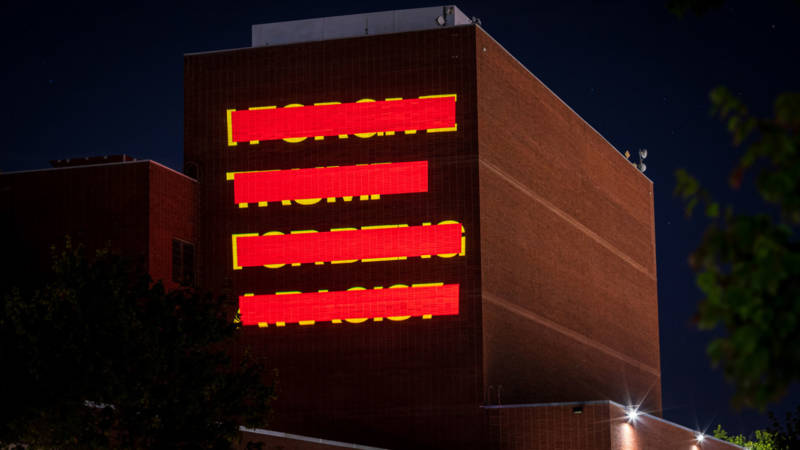For just five nights, the north wall of Richmond’s Memorial Auditorium belongs not to the city, but to the people of Richmond. Between the hours of 8 and 11pm, Aug. 21–25, Christy Chan’s public art piece Inside Out projects a looping video of large text onto the auditorium’s brick tower, all phrases collected from Richmond residents. The 75-minute video includes personal aspirations, dreams for Richmond, worries about the fate of the planet, messages of forgiveness and notes of encouragement.
But markedly absent from the projection are any submissions critical of President Trump or his government’s policies. Instead, a message appears in blue: “The city of Richmond has banned us from projecting phrases you submitted that criticize the President of the United States by name. Of the 1,100 phrases submitted many have shown viewpoints on the president in both English and Spanish.”
Large red bars block out the six phrases that follow, rendering them illegible.
“I think it’s important that people know those voices existed, even if I can’t physically project them in the work,” Chan says. “I want to illuminate their absence.”

Inside Out received its submissions during public workshops conducted in English, Spanish and Mandarin Chinese, and via an online portal. The project catchphrase is “Speak your truth.” Prompts for phrases (limited to seven words or less) include “Tell us your life story,” “Thank someone for doing something great for you,” and “I worry about _____.”
After a month of collecting submissions, Chan distilled the phrases down to a representative group of 100, which she presented for review to the Richmond Arts and Culture Commission (RACC) at their July 23 meeting, per her grant contract with the city. The commission accepted all the phrases except for one: “Donald Trump, te perdono por rasista” [sic] (essentially, “I forgive Donald Trump for being racist”).
Chan says she included this particular phrase in the winnowed-down group because of its poetic quality. “I felt like it encompassed a lot of what other people were saying, but in a new way,” Chan says. “There were a lot of statements alluding to Trump being racist.” She estimates between 40 and 50 submissions of the 1,100 referred to the president by name—many of them critical.
Yet, Chan notes, “Everyone was very respectful in their submissions, no one was saying profane things. I was really moved by how thoughtful some of the phrases were.”

Michele Seville, arts and culture manager for the Richmond Arts & Culture Division, who shepherded the project to completion, says the RACC was cautious in part because they were unsure about official policies regarding political statements on city buildings. It might be easy to dismiss the city’s response as alarmist censorship, but such decisions are complicated by the president’s own attempts to withhold federal funding from cities like Richmond.
“Richmond is a sanctuary city, and they didn’t want to jeopardize its status or its state/federal benefits,” says Seville.
In fact, several participants in the project disclosed their undocumented status to Chan, who says the option to submit phrases anonymously gave people the freedom to say what was really on their minds. Recent census data shows over 35 percent of Richmond’s residents are foreign born.
In the weeks that followed the July meeting, the city attorney’s office reviewed the phrase and recommended removing it from the public presentation. “They advised that it was best not to include it unless it was approved by both the RACC and the Richmond City Council,” Seville says.
The city’s summer schedule prevented any such approval. “There wasn’t time to get the art commission to approve it before the quotes were projected, and the city council does not meet during the month of August,” Seville explains. “So, the time for responding would be after Inside Out was finished.”
Instead, Seville encouraged Chan to include mention of the phrase’s elimination in the final video. “I need to work within the boundaries of city policy and respect its decisions even when they might not be shared by myself or others,” Seville says.



